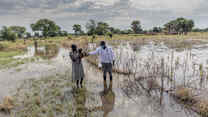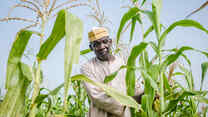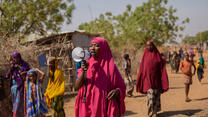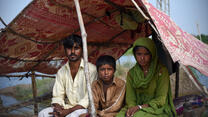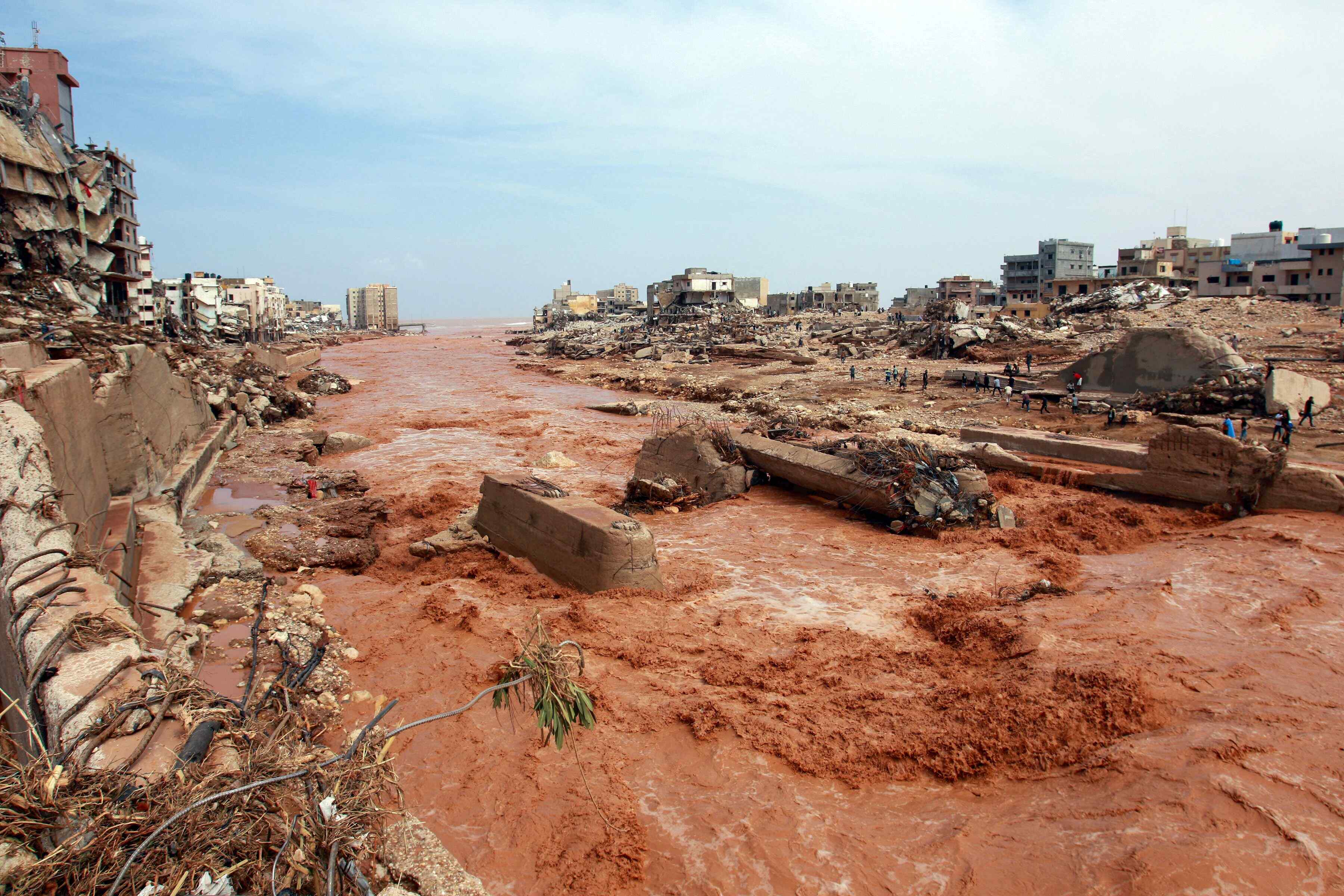
Unprecedented floods struck Libya after Mediterranean Storm Daniel made landfall on September 10th. The storm’s intense rainfall struck the country’s eastern region, leading to the collapse of two dams south of the city of Derna. Subsequent flooding swept away entire neighborhoods.
Over 40,000 people have been displaced across the country and the Ministry of Health has confirmed the deaths of 3,600 people.
The flooding exacerbated needs in Libya, where 800,000 people already needed humanitarian assistance. Libyan leaders have called on the international community for support.
The International Rescue Committee (IRC) is preparing a response to meet the pressing needs of flood-affected communities and is scaling up services in the country.
Learn more about the flooding in Libya and how you can help survivors.
How are floods impacting Libya?
Libya is reeling from unprecedented floods caused by Mediterranean Storm Daniel. The North African country is the latest to suffer from climate change-induced flooding.
Due to years of conflict and insecurity, the country lacks the capacity to respond to the crisis without support from the international community.
“The situation in Libya has been steadily deteriorating due to years of conflict and instability, compounded by the impacts of climate change,” explains IRC senior vice president for crisis response, recovery and development, Ciaran Donnelly. “Globally, climate change has made these extreme weather events more frequent and intense, making it even harder for communities to cope and rebuild, especially in conflict-affected regions.”
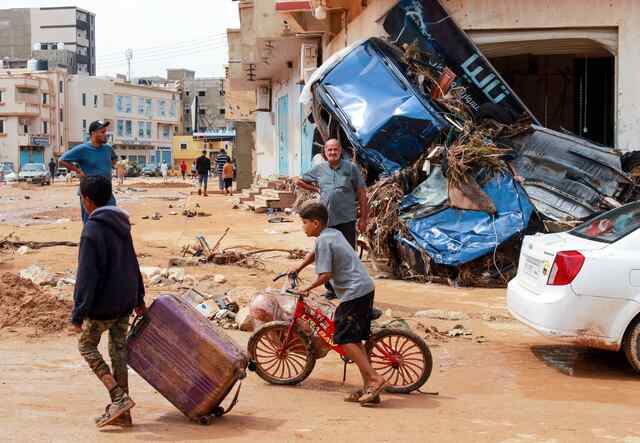
Two dams collapse in Derna, Libya
Two dams south of Derna collapsed under the pressure of Mediterranean Storm Daniel. These collapses led to intense flooding that swept through the city of Derna, which is home to 90,000 people.
In addition, the destruction of roads, phone lines and bridges has hampered the ability of aid agencies to enter affected cities including Derna, Sousse, Shahat, Al Marj, Al Bayada and other rural communities.
A rising death toll
The flooding in Eastern Libya has so far claimed over 3,600 lives according to the Ministry of Health. More than 10,000 more people are missing and 40,000 have been displaced.
The number of casualties is likely to rise as first responders continue to search for survivors.
“The IRC is gravely concerned about the protection needs of those caught up in this tragedy, especially thousands of women and children who have to leave their homes in search of safety,” says IRC Libya country director Elie Abouaoun. “Urgent emergency shelter is needed for those unable to return to their homes, and psychosocial support for those who have seen their lives literally washed away.”
A public health emergency
The IRC is warning of an escalating public health crisis as the flooding leaves thousands of people near Derna without access to clean and safe drinking water. Flooding has severely contaminated water sources with sewage, leaving them unsafe and increasing the risk that waterborne diseases spread.
Vulnerable groups are particularly at risk. Nearly 300,000 children face an increased risk of diarrhea and cholera as well as dehydration and malnutrition. Unaccompanied and separated children are more vulnerable to violence after the storm.
There have already been 55 recorded cases of children falling sick due to contaminated water in Derna.
"The situation in Derna and other flood-affected areas of Libya is dire,” says Abouaoan. “Access to clean water is a basic human right, and we are deeply concerned about the health and well-being of those affected by this contamination crisis.”
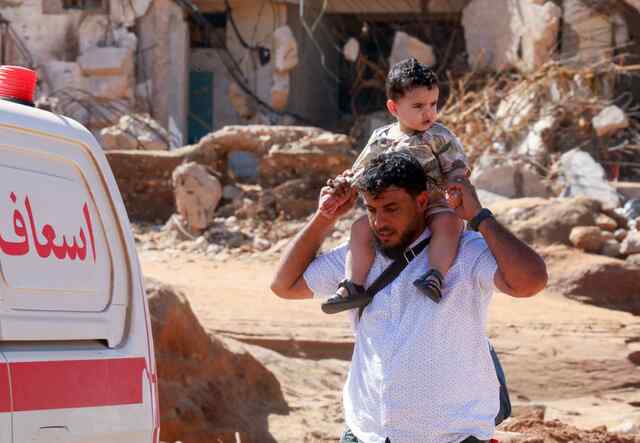
Climate change is increasing the severity of flooding
The recent devastation in Libya exemplifies the challenges that conflict-affected and climate-vulnerable communities face. Protracted instability in Libya has left vulnerable communities with minimal climate preparedness, inadequate infrastructure and limited access to essential services. These conditions will make it incredibly difficult for communities impacted by the flooding to cope and recover.
“The overwhelming amount of rain that fell, combined with ineffective early warning systems and preparedness measures and critical infrastructure in bad repair, deepened the humanitarian crisis,” explains Abouaoun. “It is often the most vulnerable people - at risk of their homes, livelihoods and health - who are on the frontlines of the climate crisis.”
“This tragedy underscores the urgent need for international attention and assistance as well as for climate action."
Learn more about climate change and the impact of floods.
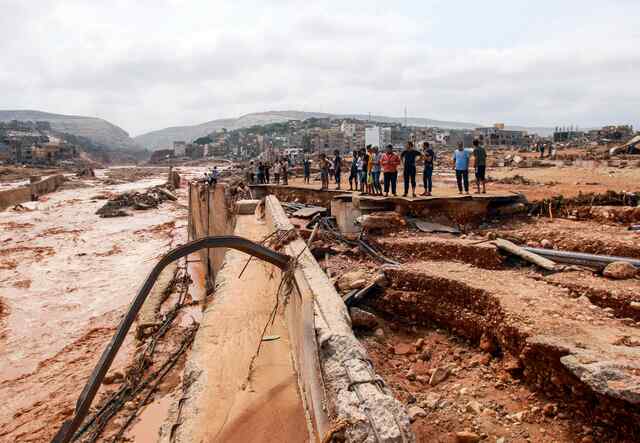
How is the IRC responding to the flooding in Libya?
The IRC is preparing a response and is committed to working with local partners and the Libyan authorities to provide immediate assistance to those affected by this disaster. We urge the international community to step up and support the people of Libya in their time of need.
The IRC is planning a response that would target the following key area:
- Health services: The IRC is determining how to best meet local health needs. This includes the provision of medical supplies, equipment, medicine and logistical and technical support to medical facilities, including field hospitals and public health centers. In addition, the IRC’s mobile medical teams are preparing to support emergency medical screenings, treatments and referrals.
- Protection services: The IRC recognizes the protection needs of survivors and is working to establish a response that delivers protection monitoring and individual protection assistance, critical psychosocial support, and dignity kits that contain hygiene and sanitary items, as well as other items explicitly tailored towards the local needs of women and girls.
- Basic household items: The IRC is identifying pathways to deliver critical items including first aid kits and family support kits which include diapers, clothing and other essentials to support displaced families.
“We must remember that Libya is not just a country in crisis; it is also a gateway for people on the move to Europe,” explains Donnelly. “The IRC has been working tirelessly since 2016 to provide essential healthcare and protection to vulnerable Libyans, refugees and migrants affected by this protracted crisis.”
The IRC has been supporting vulnerable populations in Libya since 2016 and continues to provide clients with integrated lifesaving protection and health services at safe spaces, detention centers, disembarkation points and other areas where humanitarian needs remain high.
How can I help after the floods in Libya?
The IRC has conducted a joint needs assessment and will scale up services to support flood-affected communities. Please consider donating to the IRC to help fund our emergency response work in Libya and in more than 40 crisis-affected countries around the world.
Stay updated about the developing crisis in Libya and learn how the IRC has been providing services in the country since 2016.
